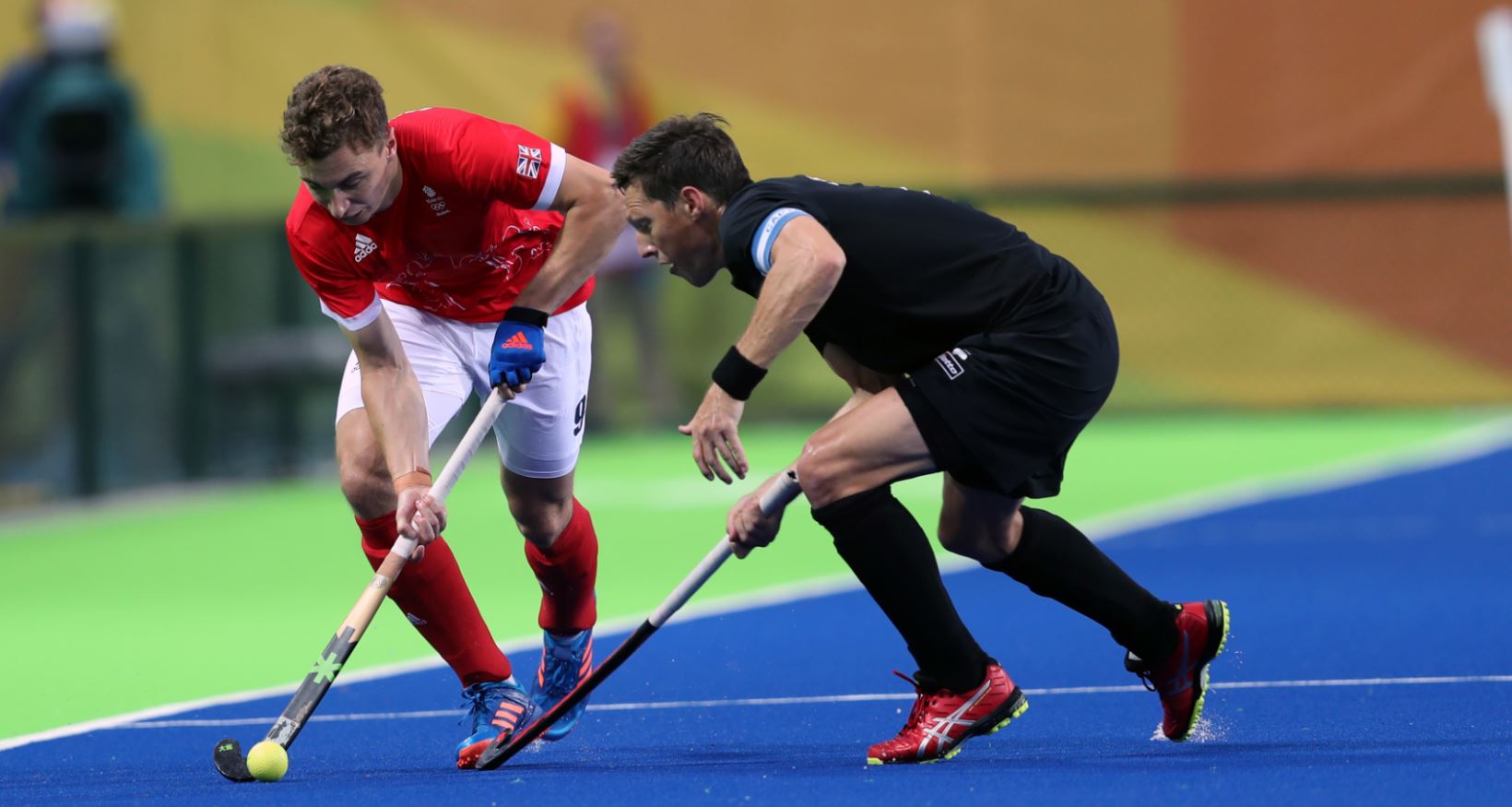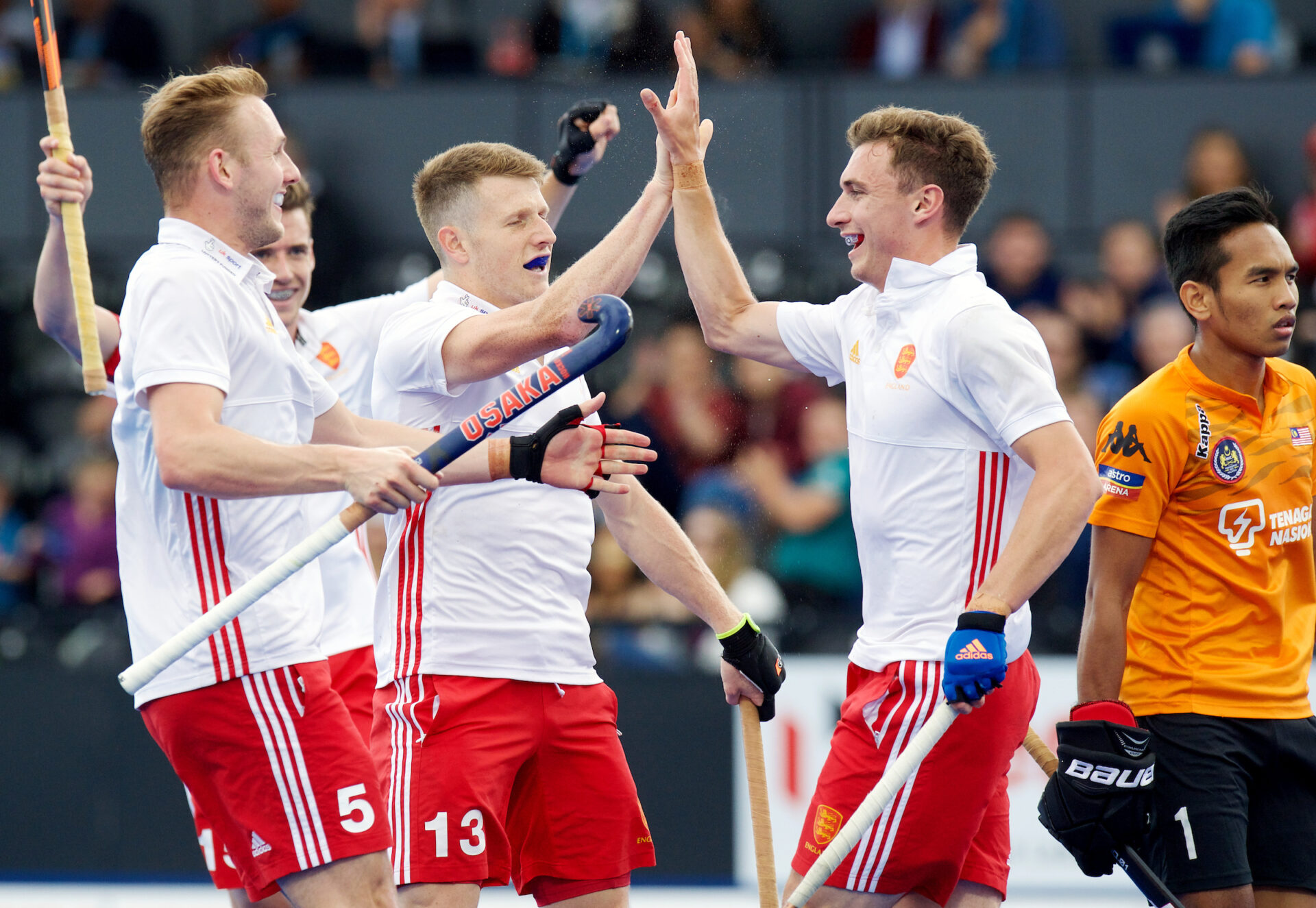Apart from the GB women and Argentina’s men, every team left Rio with some level of disappointment. On the men’s side, Australia’s quarter-final exit and Great Britain failing to get that far has caused much concern for those inside the respective programmes and prompted plenty of comment from the other side of the fence. So where did at all go wrong?
Notably both teams seemingly struggled from the first whistle. GB were battered by Belgium and the famously attacking Australians limped past NZ and onto successive 1-0 losses.
Only two years earlier Australia had thrashed Argentina and Holland to win the World Cup and so it seems they and fourth-placed GB were undone by a new style of game in Rio.
One statistic supports that argument. Along with quarter-finals, the big change in Rio was that matches were played, for the first time at one of hockey’s big two tournaments, in the 15-minute quarter format.
Looking at the total goals scored, there is an interesting shift from the 35 minute halves at the World Cup. The Pool B numbers are virtually identical suggesting little change to the game and actually with slightly more goals per minute. The Pool A goals however, allowing for a sensible adjustment to brave Brazil’s results, suggests as much as a 25 per cent drop.
One game would be as normal and then the next would be low on goals, heavy in possession and dominated by defences. Notably Australia and GB were in Pool A with the fewer goals and it seems that both teams now need a better way of managing this new type of game.
For Australia, it means they can’t be as reliant on their aggressive pressing game as now Belgium, Holland, Argentina and others can cope with it as only Germany previously could.

For GB, the slower style perhaps meant fewer fast-paced opposition attacks from which the defensive skills of George Pinner, Iain Lewers et al could provide the ball for Ashley Jackson or Barry Middleton-based counter-attacks.
Both teams also have questions over their squad preparation. Word from Australia is one of a troubled lead-up with three senior players injured and barely able to train in the final six months before the event.
Throw in another three major injuries that ruled players out and suddenly over a third of the preferred squad was at home or badly under-prepared.
Add both specialist drag flickers struggling for goals and form and even the strongest of squads is likely to struggle under Olympic pressure.
For GB, a major problem is the lack of youth and for some time it’s been difficult to see where the next Middleton or Jackson might come from. For a clue as to why, click on Harry Martin’s profile on the GB hockey website. In 2012, Harry (the youngest player in the team) was the first player selected for an Olympics to have come through the Single System.
Four years later in Rio, with the exception of Ian Sloan who had transferred from Ireland, Harry was still the youngest player in the team. Over two Olympic cycles it seems that the system has somewhat ironically produced a single Olympic player.
My point though is not to lead a chorus of criticism. Having spoken with the people charged with the redesign of the pathway process, you can take it from me that there is both the expertise and capability to build something better.
Inevitably though this is going to require change and that will need support. So if you’re a player, parent, coach, manager or club member that went from hugging the TV while watching the women to kicking it during a men’s match then please be willing to support these changes when the need comes along. After all, we don’t want Harry to be the youngest player in Tokyo.
———————————————————————————————–
FEDERATION GET THEIR TIMINGS SPOT ON
One great rule change you might have missed.
Aside from the women’s final, the most extraordinary match in Rio was Germany’s astonishing comeback to win from 2-0 down against New Zealand with only five minutes left in their quarter-final. It wasn’t until a couple of weeks ago, however, that I understood the credit that the International Hockey Federation (IFH) deserve for helping this game reach it’s fantastic outcome.
Viewers will have probably realised that time is now stopped in international matches for penalty corners so that no seconds are lost through gamesmanship or the application of protective equipment. What I recently discovered from fellow Tasmanian and FIH presidential candidate Ken Read though is that time is also now stopped immediately after a goal has been scored.
This allows teams the same time and opportunity to celebrate a goal with their team and supporters as happens at any other moment in the game without worrying about the time it might cost them.
Consequently, instead of the often fractious scrambling for the ball, rush back to the centre-line and cajoling of the opposition that we see in football, what we saw in Rio was the Germans enjoying each goal after which both teams and the umpires could compose themselves for the next phase of play.
Not only does this make these last tense moments far more enjoyable for players and spectators, it’s far easier to control for umpires and ensures that every second of the game is played out which is absolutely right in a game where a goal can be scored in a matter of seconds.
Todd Williams is a former Australian international, the hockey professional atMagdalen College School in Oxford and a Premier League coach for over 12 seasons with Hampstead and Westminster HC, Slough Ladies HC and, most recently, four seasons with Surbiton HC. Follow Todd on Twitter: @toddwilliamsUK
This article originally appeared in The Hockey Paper on Wednesday 16th November.






Suggest you look into JRPC system forcing kids to choose hockey far too early. Kids with natural talent and perhaps attitude won’t stay in the system for long. Many of the Olympic team had attitude at younger ages and would not have succeeded in today’s system. Compare with the failure of tennis to produce. Private school kids also have to study. Hockey needs to keep the talented mavericks and not discard them.
Some interesting points. Regarding GB, the key question is why no visible progress has been made since 2012, and more pertinently since England won the European Nations Cup in 2011. Performance has got gradually worse ever since.
Many of the key players are the same , notably Middleton and Jackson, who are undoubtedly world-class but too rarely seem to combine to great effect at international level. The spine of the team with Lewers at the back looks solid, on paper only unfortunately.
Harry Martin may still be the youngest team member, but in theory having a team with extensive international experience in every position ought to be an advantage. In reality, Martin and others around him have not developed individually as might have been expected.
The perfomance in Rio was depressingly poor, but sadly predictable. Surely it’s time for a fresh coaching approach, as well as a better system for identifying and channelling young talent to international level.